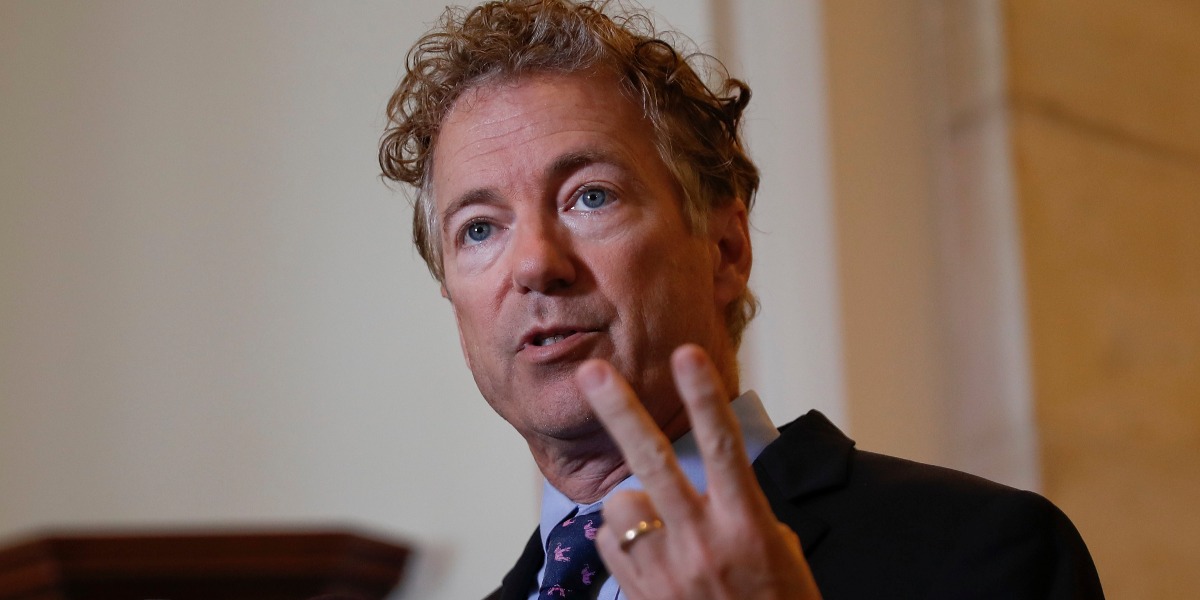When Bernie Sanders introduced a “Medicare for all” universal health care plan in 2015 virtually no one supported it, believing it was too extreme. This month, when Sanders introduced the same bill, every potential 2020 Democratic presidential candidate except Joe Biden backed it. It’s getting closer to a party consensus.
Videos by Rare
How did this happen? What changed? How did a position considered once so extreme — in terms of what is actually politically possible — become increasingly mainstream?
It didn’t happen just because of Sanders, though he’s a crucial part of the equation. A political figure had to push for the purest progressive ideal — universal single-payer health care — to give it context and popularize it.
RARE POV: McCain wants caution before rushing health care. He should do that with foreign policy
On Tuesday, the latest GOP Obamacare repeal legislation, Graham-Cassidy, was declared dead. Sen. Rand Paul was one of a handful of Republicans who refused to support it, believing this “repeal” was no such thing, and simply block granted over a trillion in spending to the states. Paul wanted to cut the spending and get rid of federal laws that prevent private businesses and citizens from forming their own Association Health Plans.
Many, including most Republicans, considered Paul’s position extreme.
In short, Paul wanted a free market solutions to America’s health care problems — the polar opposite of what Sanders seeks.
The two diametric positions represent the most basic dichotomy of what the two parties are perceived as standing for by many: Republicans want small government and free market capitalism, and Democrats want big government socialism.
Yet only one of the two parties is being itself.
At the moment, more Democrats than ever are moving in Sanders’ direction toward single-payer health care. But Republicans? Long gone are the days of complaining that Obamacare will take over “1/6 of the economy;” almost every Republican but Paul concedes that Obamacare in one form or another is here to stay. The Los Angeles Times Jon Healy writes, “the Graham-Cassidy proposal would socialize some of the cost of healthcare for millions of Americans, to the tune of more than $1 trillion per decade.”
Remember, this is occurring as Republicans control both Congress and the presidency.
Paul’s critics, however, could be right. There’s a case to be made that Paul should have voted for Graham-Cassidy because it really is the best Republicans could do, ever, politically.
But then again people used to laugh at Sanders’ impossible and impractical dream of socialized health care in America. They are not laughing now.
For years, Rand Paul’s father, Congressman Ron Paul, was the sole voice in Washington calling for an audit of the Federal Reserve. It was considered a fringe position supported by Ron Paul, and Ron Paul alone.
Today, the Audit the Fed bill has popular bipartisan support. It’s relatively mainstream. However, if Ron Paul had never pushed the issue, introduced his own ideas and bills, it would have never occurred.
We may never get to a true free-market health care system, in much the same way many believe America will never accept single payer despite it’s rising popularity in the Democratic Party. But leaders in both parties can have an influence in which direction those parties trend, and as so many Democrats follow Sanders’ hard left, conservatives and libertarians should hope that at least one Republican remembers that once upon a time the GOP loathed Obamacare and cherished smaller government.
RARE POV: Rand Paul explains why the free market would provide Americans with the best health care
Rand Paul has many good ideas — revolutionary ideas — about how to make health care in the U.S. more accessible, affordable and even ways to protect those with pre-existing conditions. They should be heard. They are not being paid nearly enough attention at the moment.
But moments change. So do politics. So does what’s considered “fringe” and what’s “mainstream,” where yesterday’s extremism becomes a new norm.
There’s a time for practical compromise, especially in politics. Other times, it pays to stick to your guns.
Disclosure: I co-authored the 2011 book The Tea Party Goes to Washington with Sen. Rand Paul.
[anvplayer video=”4044147″]



